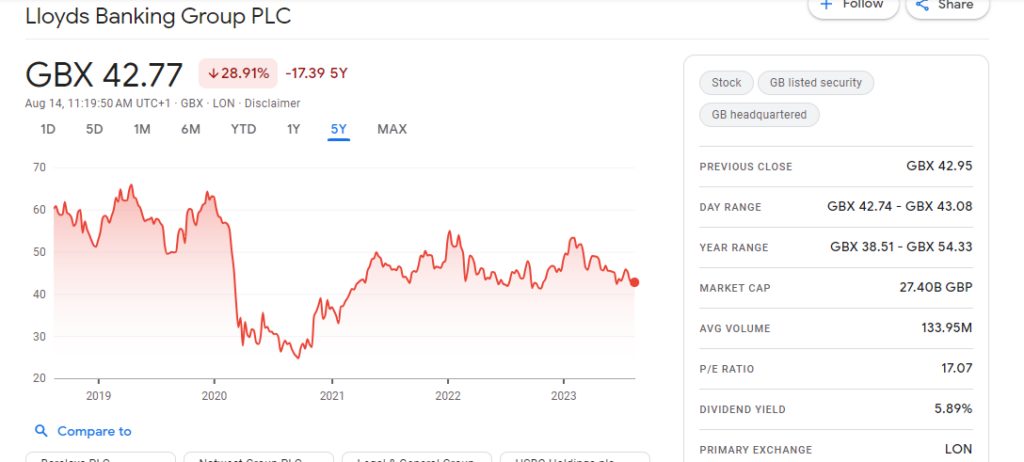One strategy to increase wealth in the face of sky-high inflation is by earning a second income through the stock market. Here is a simple how-to manual.
Having a single source of income can seem dangerous given the macroeconomic backdrop of high inflation we are currently experiencing. This is why having a second source of income is so important since it offers financial stability. And investing in the stock market is one of the easiest methods to generate side income.
Where to earn a second income?
While building a portfolio with little sums of money at first can result in significant rewards over time, investing does require funds. Consistency is crucial with this strategy, and putting money away regularly to buy equities that pay dividends and interest is one approach to making a respectable second income.
It takes time and effort to create a secondary source of income. As a result, prospective investors should begin by learning the fundamentals of investing through books or online instructional materials. Understanding how to evaluate risk, put together a balanced portfolio, and reinvest dividends is crucial.
When you feel secure, commit to consistently depositing even a small amount into an investment account and purchasing dividend stocks. Investors can watch their money grow into a diverse portfolio that bears fruit through compounding and periodic rewards provided the appropriate investments are made.
What should I invest to earn a second income?
This raises the issue of which equities investors should purchase to generate a second source of income. Well, some investments tend to generate more plentiful revenue streams. In contrast to REITs, high-yield dividend companies distribute earnings from rental properties to shareholders as a percentage of profits.
When choosing second-income assets, risk-averse investors may wish to put quality and safety first. To do this, it will be sage to investigate the financial standing and prospects of each company before investing.
To reduce the danger of a particular industry collapsing, it is crucial to diversify a portfolio across industries and asset types.
Owning income-oriented companies, which offer dividend yields above average, generates passive income that can be used to supplement income. Even a small monthly increase of £100 can go a long way toward helping you pay for utilities, debt repayments, and unexpected expenses.
But more importantly, the income can also swiftly increase. A 7% annual dividend yield on an investment of just £500 each month might bring in more than £500 in the first year. By reinvesting such earnings, the portfolio can expand and eventually yield greater dividends.
Also read: 5 Stocks To Purchase In 2023 To Generate Passive Income
Top high-yield dividend stocks to earn a second income
High-yield dividends are offered by many FTSE 100 stocks, but the two listed below outperform the benchmark. Given their potential for passive income, investors may want to take them into account.
1. Lloyds Bank
Over the past year, there has been a lot of discussion around the subject of rising interest rates. Bank shares often benefit from monetary tightening as their net interest margins increase.
Given this situation, investors might have anticipated that the share price of Lloyds would increase following strong half-year profits of £3.9 billion.
This amount was significantly greater than the £3.1 billion it brought in during the first quarter of 2022, illustrating the positive financial impact of the Bank of England’s rate increases on the company. The shares of Lloyds have, however, fallen 9% in 2023.

The Black Horse Bank reported a £419 million bad loans charge in the second quarter, a significant increase from £243 million in the first quarter, which contributed to the decline.
This shows that as the cost-of-living issue continues, an increasing percentage of Lloyds customers are having difficulty. Additionally, as the largest mortgage lender in Britain, the firm is especially exposed to weak housing market activity.
Despite this, if inflation declines much as predicted by the end of the year, the stock’s performance may improve. With a price-to-book ratio of 0.74 right now, it appears that Lloyds is still a sensible investment.
Despite the potential delay in share price increase, the robust dividend yield appears solid.
2. DS Smith
DS Smith stock has likewise decreased by around 9% in 2023. However, the company’s outstanding set of yearly results hints that this can be a compelling purchasing opportunity.
The company generated £8.2 billion in revenue, an 11% increase at constant currency over the prior year. Operating profit adjustments also picked up speed, rising 35% to £861 million. Importantly for those looking for passive income, DS Smith increased their dividend per share by 20% to 18p.

The group has extensive exposure to the online retail industry. Among others, DS Smith provides cardboard boxes to companies like Amazon. Although the firm’s first volume loss in 15 years indicates the difficult near-term trading climate as consumers tighten their belts, we believe the long-term prospects for demand from this sector remain solid.
Separately, one appealing aspect of DS Smith’s long-term plan is its emphasis on employing recycled corrugated sheets for its products. Consumers who care about the environment are turning away from plastic packaging.
High inflation is still a significant problem for the company. The business’s bottom line has been hurt by rising costs. The business has also recently had to deal with strikes by employees who want better compensation packages.
Despite the difficulties, the company’s finances have improved thanks to price increases for its products that exceed inflation. Investors may choose to put the stock on their watchlists after taking into account the high dividends.
Is a second income assured?
Consistency, perseverance, and thorough research are necessary for making a second income through the stock market. Income is not always a given, though. Market turbulence and economic shocks might cause firms to stop paying dividends, as they did during the pandemic.
But over a long period, compounding returns have brought about growth, as Warren Buffett’s stellar track record attests. Additionally, dividends may reduce volatility when prices decline, so perhaps compensate for any losses.
Given the stock market’s recent slump, now could be an ideal time to begin investing to earn a second income. After all, several FTSE stocks, including banks and miners, are currently undervalued due to market and economic unpredictability.


Leave a Reply